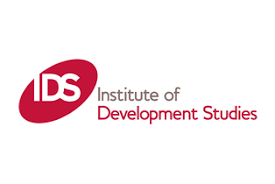
https://www.ids.ac.uk/news/millions-of-refugees-left-unvaccinated-agains...
Despite many countries having legal provisions in place mandating equal healthcare for all, including Covid-19 vaccinations for refugees, last year the UN found that 40 percent of 152 host countries’ vaccination plans did not include, or were unclear about the inclusion of refugees and asylum seekers. This could leave up to 46 million displaced people struggling to get vaccinated, almost 18 months on from when the first vaccines became available.
Lack of vaccine stock
Even when refugees and migrants are included in national vaccine roll-out plans, just three percent of global vaccines are currently available in low-income countries – where the majority of refugees are hosted. Health officials and migrants’ rights activists interviewed for the research cited the lack of vaccine stock as the main explanation for low levels of vaccination among migrants and refugees.
Countries such as Uganda, Pakistan, Lebanon and Colombia, who host some of the largest refugee populations, are being hampered from including refugees in their vaccine rollouts due to the underfunding, delays and vaccine shortages from the COVAX (Covid-19 Vaccines Global Access) scheme.
Populist policies and vaccine nationalism
The researchers argue that populist policies and vaccine nationalism from richer countries is one factor causing COVAX’s underfunding. A build-up of anti-migrant sentiment and policies, like the UK’s new policy to send some asylum seekers to Rwanda, is also pointed to as another key barrier to vaccination among refugee and migrant populations. It is identified as a cause of mistrust in state authorities, contributing to vaccine hesitancy and displaced persons failing to register with health providers, for fear of being detained or deported.
Other barriers to vaccine access among refugees and migrants cited included onerous registration systems, long distances to reach vaccination centres, misinformation, pre-existing social marginalisation, and the level of digital skills and online access needed for online appointment booking portals.
Philip Proudfoot, Research Fellow at the Institute of Development Studies, said:
“We can see across multiple countries the damaging impacts that a legacy of populist policies and anti-migrant rhetoric has built up. This ‘othering’ effect is leading to underfunding and unnecessary obstructions preventing access to Covid-19 vaccines among refugee and migrant populations around the world.”
Brigitte Rohwerder, Research Officer at the Institute of Development Studies, said:
“This is a massive population of marginalised people who are being forgotten about, or worse, actively excluded from receiving the protection that Covid-19 vaccinations provide.
“The Covid-19 virus does not, quite obviously, differentiate by citizenship. No one is safe anywhere until everyone is safe everywhere, and having millions of people still unvaccinated leaves the door open to new Covid outbreaks and new strains on healthcare services.”
Country examples
Lebanon
Refugees living in Lebanon theoretically have the same access to vaccines as citizens, but their vaccination rates are lagging far behind. The explanation for this includes years of ‘policies making it difficult for Syrians in the country to maintain legal residency, access basic services, and earn a living’ (Reidy 2021), as well as forcible deportations and regular talk of sending them back to Syria, which means that ‘many Syrians fear [that] registering on the government’s vaccine platform could lead to arrest, detention, or even deportation’ despite assurances that data will be firewalled from security services.
There are also concerns amongst Syrian refugees that they cannot afford to deal with any side effects from vaccines as they do not have access to appropriate health care. Lack of information and misinformation were further challenges to vaccination, as many refugees were unaware of how to register to be vaccinated or that they were entitled to be vaccinated, while others heard that it was unsafe or that it was linked to a government plan to send them back to Syria.
Colombia
In Colombia, undocumented Venezuelan migrants fear accessing health care due to concerns about what would be done to them if they sought care and treatment, as well as over the costs of treatment. Existing discrimination and growing xenophobia contribute to their uncertainty over vaccine access, despite a dramatic policy shift in February 2021, when the president declared that undocumented Venezuelans would be offered temporary protected status. This is a significant shift from December 2020 when he made a much-criticised declaration that undocumented Venezuelan migrants would be excluded from the country’s vaccination campaign.
Despite the policy shift there are concerns that many undocumented Venezuelans will still struggle to access vaccinations, especially as they will struggle to get the documentation to formalise their immigration status. There are also concerns that issues around vaccination will increase xenophobia due to the fear of unvaccinated people.
Greece
Greece declared that asylum seekers in camps are not a priority group, despite concerns that they are more likely to be susceptible to the Covid-19 virus due to their living conditions. Whether or not forcibly displaced persons will be prioritized remains to be seen when there are only a small number of available doses and countries push to inoculate their own citizens first.










Add new comment